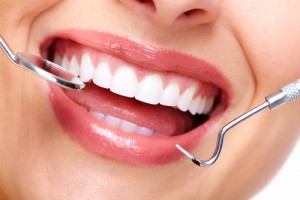Saliva: The Unsung Hero of Oral Health

We all know how important it is to brush and floss our teeth to keep them pearly white. It’s believed that cleaning the teeth will keep the bacteria away, but what few people realize is there is another heavy hitter at play fighting for the mouth’s health: saliva. Many people fail to realize that their oral health is only as good as the saliva maintaining it.
What Is Saliva?
Saliva is more than a drooling nuisance while you sleep. It’s a 98 percent water substance that is produced by the salivary glands in the mouth. It contains electrolytes, mucus, antibacterial compounds, and various enzymes. It’s main functions include:
keeping the mouth moist
aiding in chewing, tasting, and swallowing
fighting germs and preventing bad breath
protecting tooth enamel and fighting tooth decay
Digestion begins in the mouth with the breakdown of carbohydrates and starches into sugars. Bacteria feeds on these sugars, causing tooth decay and cavities. Without saliva, bacteria would grow unchecked and do permanent damage to teeth. Saliva ensures that calcium, phosphorous, and various other minerals flow through the mouth evenly, strengthening the tooth enamel. The proteins and enzymes in saliva fight infections and help slow tissue loss.
How Dry Mouth Affects Oral Health
Dry mouth is more than just uncomfortable; over time, it can lead to the deterioration of your teeth. Without saliva, there is nothing to dilute the effects of sugar on your teeth. This allows germs and bacteria to thrive in your mouth, causing bad breath, gum disease, and cavities. A loss of saliva also affects the body’s ability to replenish tooth enamel because it isn’t delivering the nutrients where they are needed.
The Importance of General Care
It is vital that regular dental visits occur because a dentist can help treat dry mouth and eliminate plaque buildup. During a general care visit, x-rays will be taken, the doctor will review oral symptoms, there will be a clinical exam including an oral screening, and the mouth will undergo a deep cleaning. These general care visits should be semi-annual and will allow for the early detection of gum disease.
Non-Surgical Treatments for Gum Disease
Gum disease occurs in various forms depending on how aggressive it is. It is caused by a buildup of plaque and bacteria in and around the gum tissue. This can happen because of poor cleaning habits, excess sugar, and dry mouth. Mild cases of gum disease (gingivitis) can be rectified with a deep cleaning or sealing and root planing.
Aggressive cases of gum disease (periodontitis) can be treated using laser therapy. This procedure uses laser energy in the tissue around the tooth to kill bacteria and promote healing. Laser therapy can also treat cold sores and tooth sensitivity.
To see if your saliva is doing its job, schedule your appointment for a general exam with Dr. Fiss today. Call 312.642.6631 or fill out our online contact form here.